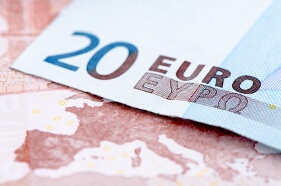The euro demonstrated weakness during the Friday’s trading session. The monetary policy outlook and concerns about economic growth made currency not particularly attractive to investors while the result of the Greek parliamentary elections did nothing to help the matter.
The elections over the weekend resulted in the victory of the Syriza-led coalition, meaning that Prime Minister Alexis Tsipras remains in power. While it had little immediate impact on the euro, the result of the voting is not good for the currency in the long run as it will not make debt-relief negotiations between Greece and its creditors any easier.
Meanwhile, analysts speculate that the European Central Bank may implement additional monetary easing as the global economy continues to show signs of weakness. The ECB easing bias is a stark contrast to the hawkish stance of the Federal Reserve, and this does not help the euro at all.
On the data front, the German Producer Price Index fell 0.5 percent in August from a year ago, yet another reason for the shared 19-nation currency to fall.
EUR/USD dropped from 1.1281 to 1.1195 as of 18:35 GMT today. EUR/GBP fell from 0.7260 to 0.7222 and EUR/JPY declined from 135.49 to 134.89.
If you have any questions, comments or opinions regarding the Euro,
feel free to post them using the commentary form below.



Be First to Comment